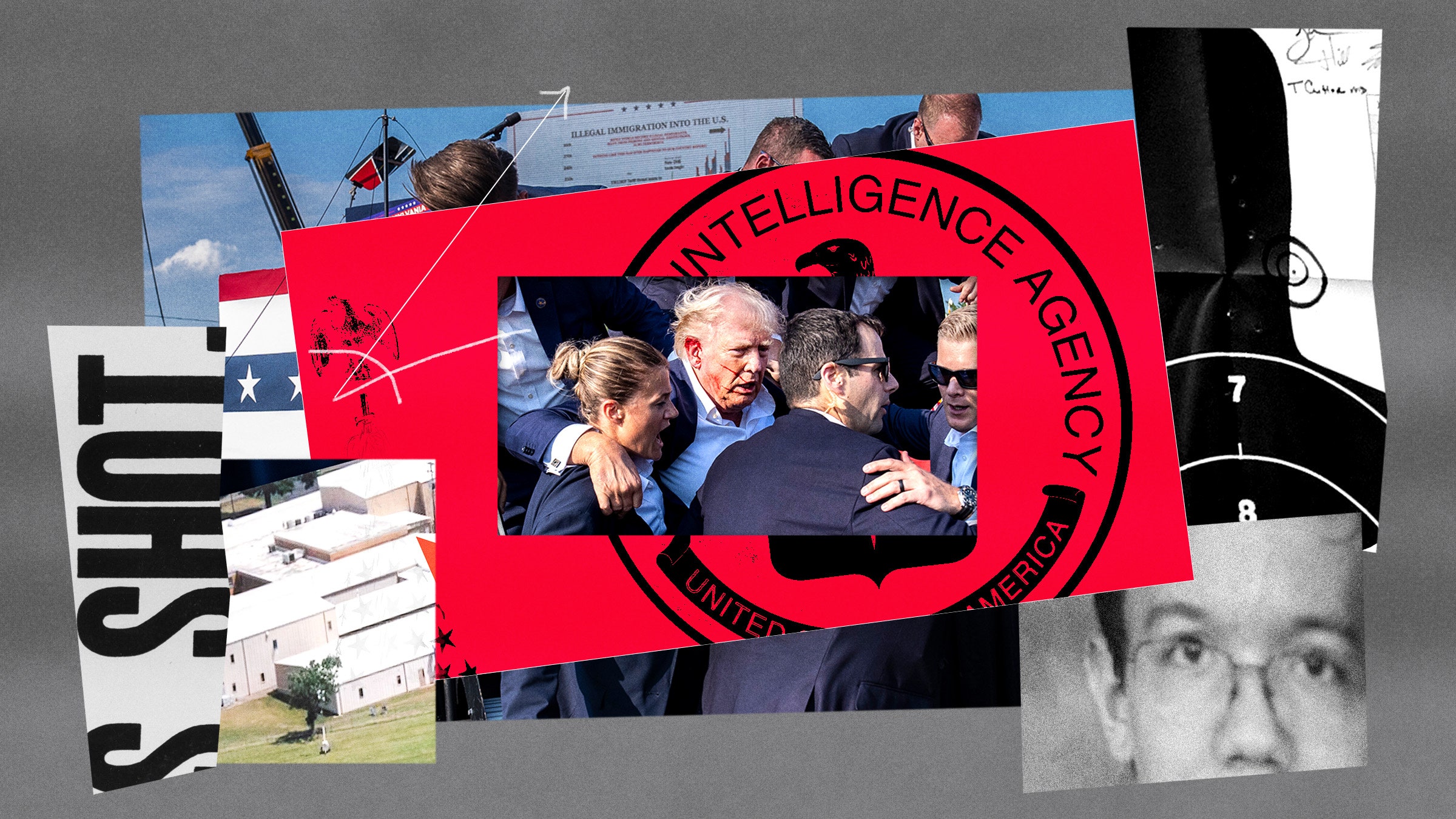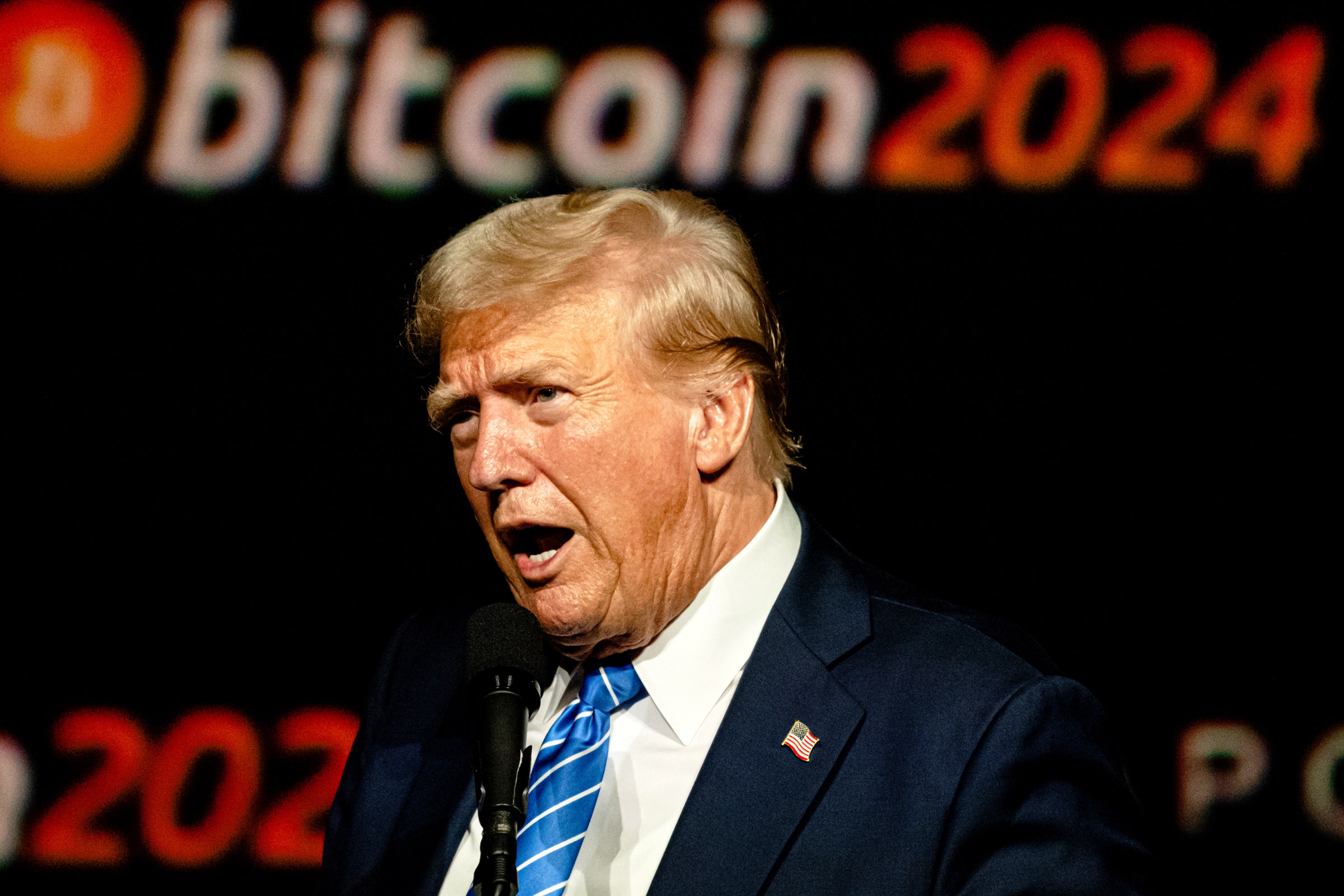The Kamala Harris and Donald Trump campaigns have built massive networks of influencers who have attended their rallies, amplified their content, interviewed them on podcasts, and joined their staffs in tweeting from debate night war rooms. As Election Day approaches, they have one last job—getting people out to vote.
This really has been the Influencer Election Cycle. But what we don’t know just yet is who, whether it be Harris or Trump, has played that game best. Harris has an army of celebrities and microinfluencers, but Trump has the entire right-wing media ecosystem on his side and the megaphone that is Elon Musk’s X account.
And over the past week, in the final stretch before election day, Republicans and Democrats have gathered groups of influencers on organizing calls, policy summits, and studio spaces in an effort to help them get out the vote.
This is an edition of the WIRED Politics Lab newsletter. Sign up now to get it in your inbox every week.
It’s not your average politics newsletter. Makena Kelly and the WIRED Politics team help you make sense of how the internet is shaping our political reality.
- 🗞️ Read previous newsletters here.
- 🎧 Listen to the WIRED Politics Lab podcast.
In a Monday Zoom call, the Harris campaign laid out the messaging and specific calls to action they’re looking to have amplified over the next two weeks with around 270 creators. Campaign staffers encouraged the creators to share links to iwillvote.com and a variety of graphics and campaign-made TikTok audios to their audiences.
“It’s so much fun talking to voters, talking about what’s important to them, and connecting with them, not always on policy issues, but definitely on values and emotions, and really describing what’s at stake in this election and making that clear distinction,” Sergio Godinez, an organizer for the Harris campaign, said on the call.
Harris staffers also told influencers to expect a Google form that will be circulated in order to gauge their interest in traveling to battleground states like Michigan, Pennsylvania, and Wisconsin.
“By filling out this Google form, telling us when and where you are willing to travel and with how much notice you need, knowing that as a campaign, we are moving fast,” Daniela Hernandez Guerrero, the Harris campaign’s deputy director of digital partnerships, told the creators on Monday. “We’ll try to give you more than 24 hours notice for travel, but we can’t make any promises. We will do our best to plug you into the right opportunities that make the most sense for you.”
Guerrero said that possible opportunities would be jumping on a campaign bus touring Las Vegas and speaking to voters about reproductive rights or to go door-knocking in battleground states. It sounds like the details are still shaking out, but I reached out to the Harris campaign for more information.
“At the very least, creators should at least be telling our audiences and asking our audiences to vote. I know we feel overwhelmed with the presidential election, but there’s so much more on the ballot in every state and every city too,” says Jeremy Jacobowitz, a NYC food influencer who has worked with the Harris campaign in the past. “I’m still planning a few posts coming up explaining why I’m making the decision that I am for Kamala.”
On Wednesday and Thursday this week, the Harris campaign set up action hubs in New York City and Los Angeles to create a space for influencers to make get-out-the-vote content and phone-bank from the studios. The creators are supposed to sign up for specific shifts, and they will be given interview spaces outfitted with mics, backgrounds, and on-site production teams to turn around content quickly.
In an email to those who signed up, the campaign outlined some of its top-performing GOTV content to provide examples for the creators, like voting day reminders, making plans to vote, specific battleground callouts, and videos explaining “what voting means” to the creators.
Meanwhile, the Heritage Foundation met with a group of conservative influencers last week at the Influence America event, including Emily Wilson from Emily Save America, Savannah Chrisley, Sean Mike Kelly, and John McEntee, the founder of the Peter Thiel–backed Right Stuff dating app. CJ Pearson, a 22-year-old conservative creator, hosted the event, where creators strategized how to synchronize their content over the next few weeks, focusing on some of the Republican Party’s favorite policy issues like immigration and the economy.
“We convened 30 of the most impactful emerging young conservative voices in our movement, with a combined audience of nearly 50 million people, to strategize about how we can actually reach America’s young people where they are,” Pearson told the Daily Mail last week.
In Instagram stories, the Influence America creators toured the Fox News studios and attended panels led by some of the most popular conservative creators on the internet, including Isabel Brown and Xaviaer DuRousseau. Pearson told me he was developing the event as a “Ycombinator” of conservative creators that was bringing in a variety of speakers to educate the group of around 30 influencers, like a former DHS worker who will talk about how to speak effectively on issues like immigration to their combined 50 million followers up until Election Day.
I reached out to the Trump campaign to see if they’re also going to ship out some of their influencer supporters to battleground states, but their spokesperson, Steven Cheung, didn’t get back to me. From what I can tell, the Trump campaign is more interested in getting Trump and Vance out into these folks’ studios for interviews. On Friday, Trump is expected to sit down with Joe Rogan for their long-rumored interview in Austin, Texas. Vance spoke with Theo Von for more than two hours earlier this week.
This election is close and will be won on the margins. What we’ll find out soon is which campaign—or group of influencers—actually reached voters and got them to the polls.
The Chatroom
Hey, I’m David Gilbert, a WIRED senior writer. It can feel surreal to finally publish an investigative feature you have been working on for the last six months, but that’s what I did today when I published my look at the Constitutional Sheriffs and their dangerous melding with the powerful election denial movement. Read it here.
My reporting for this really began in April, in the sparse ballroom of the Ahern Hotel in Las Vegas where the Constitutional Sheriffs and Peace Officers Association was holding a conference. But it wasn’t just sheriffs, it also featured a who’s who of the election denial movement: figures like Mike Lindell, Patrick Byrne, and Michael Flynn—who spent much of his time ignoring my questions and shouting about the “FAKE NEWS” media from the stage.
The conference was attended by just a few hundred people, and featured vendors promoting med beds, T-shirts featuring AI-generated images of Trump as a revolutionary general, preppers with HUGE buckets of food, and a sovereign citizen lawyer who was hawking for business while her tiny shih tzu trailed behind her.
But in the middle of all this craziness, there was a much darker plan being hatched, one involving armed militias, polling station patrols, and the intimidation of “illegal immigrant” voters. Over the last six months, that plan has come more into focus and now threatens the integrity of next month’s election.
Are you afraid of the potential for political violence after the election? Do you live in a battleground state and are preparing just in case? Have you had to have tough conversations with your children and family? Send your thoughts to [email protected].
WIRED Reads
- Russian Propaganda Unit Appears to Be Behind Spread of False Tim Walz Sexual Abuse Claims: Our beloved David Gilbert was first to the punch reporting that a Russian propaganda team was behind fake claims that Tim Walz sexually assaulted a former student. The US government confirmed our reporting on Tuesday.
- Elon Musk’s PAC Is Buying Ads for Donald Trump on Elon Musk’s X: The Elon Musk-backed, pro-Trump AMERICA PAC has spent more than $100,000 to place ads on X since July.
- Online Talk About ‘Civil War’ Could Inspire Real-World Violence, DHS Warns Cops: WIRED contributor Tess Owens got a look at recent DHS memos warning law enforcement officials across the country that online fantasies obsessing over civil war could lead to real-world violence ahead of the election.
Want more? Subscribe now for unlimited access to WIRED.
What Else We’re Reading
🔗 Dem Scam PACs That Harris Criticized Are Booted Off Fundraising Platform: Over the last few weeks, the Harris campaign has been warning voters not to fall for scammy PACs asking for their money. Now, the Democratic grassroots fundraising site Act Blue is removing some of these “scam PACs” from its platform. (The Bulwark)
🔗 How Elderly Dementia Patients Are Unwittingly Fueling Political Campaigns: Political fundraisers are draining the bank accounts of elderly dementia patients with deceptive messages and recurring donations. (CNN)
🔗 Bernie Sanders to Stream with Pokimane and Valkyrae In Support of Harris: JD Vance was on the Theo Von podcast this week, and Trump is apparently recording with Joe Rogan on Friday. Bernie Sanders is also making the digital creator rounds, but with a catboy v-tuber named Sykkuno. (The Washington Post)
The Download
On the pod this week, Tim Marchman and David Gilbert discuss the new story from David out this week on Constitutional Sheriffs. I’ve been catching pieces of it in conversations and in meetings for the past few months, and you’re going to want to listen to him talk about it here.
One last thing: Beyond the election, AI is impacting the ways we conduct research, protect data privacy, and even how we diagnose illnesses. Check out my colleague Reece Rogers’s latest video on how to protect yourself from AI scams, and then do me a favor and sign up for the brand-new season of his 10-day AI Unlocked newsletter where he shares tips and advice for using AI tools responsibly.
That’s it for today—thanks again for subscribing. You can get in touch with me via email, Instagram, X, and Signal at makenakelly.32.



